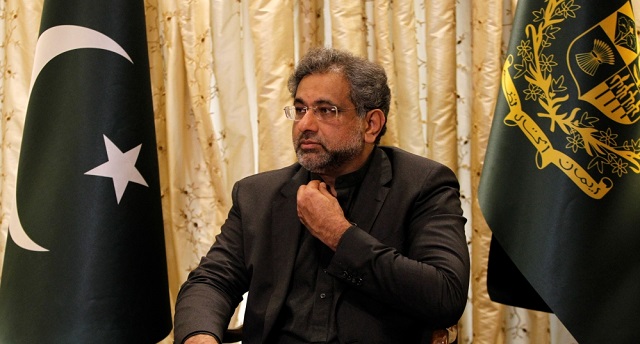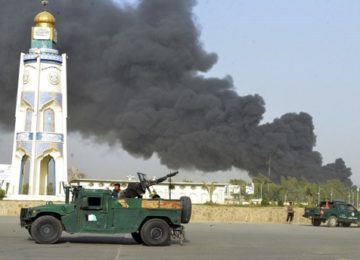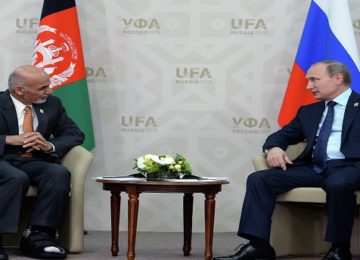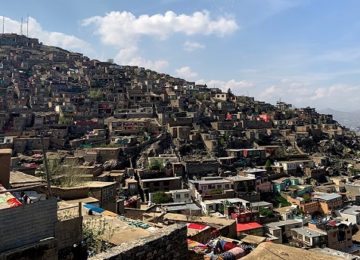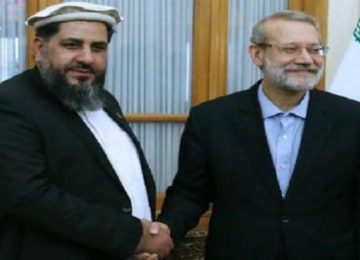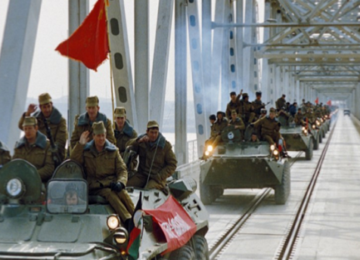Weather permitting, Prime Minister Shahid Khaqan Abbasi is set to land in Kabul on Friday. Both Abbasi and Afghan president Ashraf Ghani will meet in the context of immense grief and raging public sentiment over the killing of nearly 100 people, many among whom were students in their teens or even younger, in a seminary in Kunduz.
Afghan government officials said the raids had targeted a Taliban gathering, but witnesses and local officials maintained that at the time of the attack, a Dastaar Bandi ceremony – an event celebrating young men completing the memorisation of the Quran – was taking place at the seminary.
The near daily dance of death and destruction – mostly by Afghan Daesh and Taliban militants and to a lesser extent by Afghan security forces – inevitably and invariably casts ominous shadows on Pak-Afghan parleys on bilateral issues, making a meaningful conversation in an already complex geo-political environment very difficult. Such a toxic and loaded environment throws up several challenges for both countries.
Thus, as both leaders meet today, enormous challenges rooted in history and geopolitics stare them in the face.
The monstrous challenge for Pakistan is to convince the Afghan leadership that it is walking the talk on Afghanistan and is carefully sequencing its steps to avoid an internal militant eruption.
Another challenge, for both Pakistan and Afghanistan, is to determine how to balance the US – the main financial lifeline for Kabul – against Moscow’s newfound love for Pakistan. Both are pushing and banking on an intense geopolitical and geo-economic engagement with Pakistan.
One of the biggest roadblocks to a constructive Pak-Afghan engagement is the Pakistani military establishment’s unease with the Indo-Afghan geopolitical proximity as both feed into the USA narrative on Pakistan.
India, supported by the US, is developing interests in UAE, Saudia and Qatar, worry top military officials. The daunting task for them, they insist, is to protect Pakistan from the negative influences of this Indo-US-Afghan strategic convergence in a situation further complicated by the Iran-Saudi conflict.
Regarding Russia, Defense Minister Khurram Dastgir has said, “Moscow’s growing involvement in Afghanistan represents an important development for promoting peace and countering terrorism and that both countries have, I believe, been able to transcend their history and to have a fresh beginning.” These remarks were made to the Voice of America before Dastagir headed for a Moscow conference earlier this week. The biggest challenge for the Afghan leaders, on the other hand, is to figure if they can insulate their diplomacy with Pakistan from overbearing external geo-political influences. It will be quite a test for them to conduct relations with Pakistan independent of the US-India view on Islamabad.
An equally big challenge is whether Afghan leaders can help create a balance between their demand on Pakistan for an all-out crackdown on all shades of Taliban and the need not to antagonise every Taliban group in both countries.
Would be quite a big movement forward if the Afghan leaders conceded that regional political issues such as Afghanistan are not dependent on one or two stakeholders any more.
Another roadblock is the toxic narrative that resonates out of Kabul via media networks such as Tolo radio/tv. Forward movement, therefore, will depend quite a bit on whether key Afghan leaders and officials can detox their narrative on Pakistan.
How can Kabul and Pakistan woo Taliban into talks if the US and Afghan Air Force continue night raids and indiscriminate attacks like the one on a seminary in Kunduz that left dozens killed and maimed?
Pakistan, perhaps feeling the heat of the Trump policy, has apparently agreed to continue its security cooperation with the US in Afghanistan, exemplified by two events in March; first the U.S. State Department offered a reward of $5-million for information on Mullah Fazlullah. Additionally, bounties of $3-million each were also announced for two other anti-Pakistan militant commanders believed to be hiding in Afghanistan.
Secondly, highly placed Pakistani military officials confirm that the US drones took out about 21 TTP terrorists in a drone strike on March 8 , followed by another that killed about six TTP-Daesh terrorists. These strikes were carried out after Pakistani military provided critical information on TTP camps in eastern Afghanistan.
This also underscores Islamabad’s readiness to pursue the Taliban – whoever is under its influence – into talks and ease off pressure for President Ghani. Whether Kabul buys into the Islamabad narrative that “our influence over Taliban has shrunken,” is an altogether different story and a major reason that has kept them apart.
The real test for both countries therefore is whether they can transcend the deep-seated mistrust and find a middle ground on the respective and mutual challenges that they face in these turbulent times.
The author Imtiaz Gul is the Executive Director of Center for Research and Security Studies (CRSS).
This article was originally published in Daily Times on April 06, 2018. Original link.



